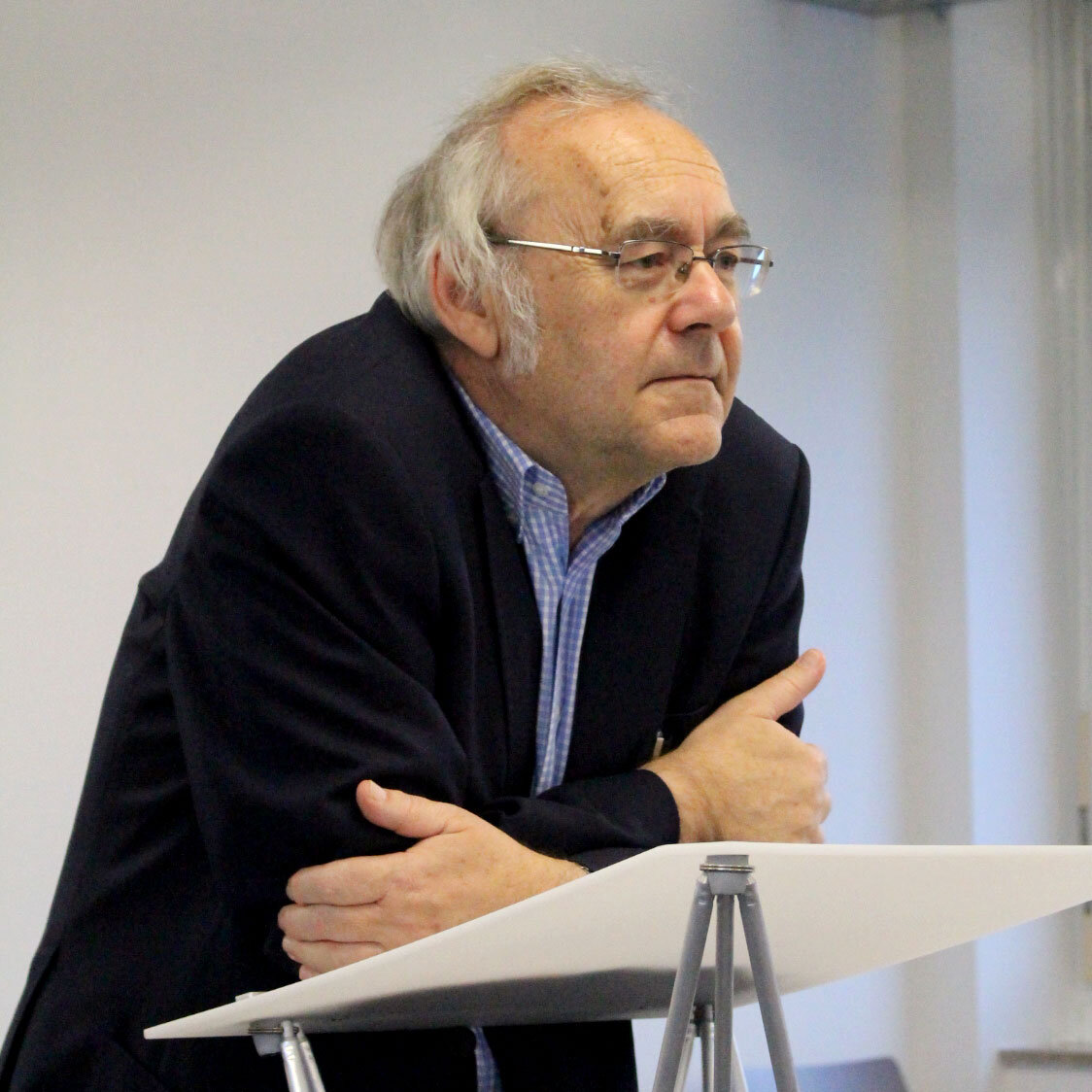The Flight From Contingency 3


18.The various proposed solutions for the philosophical problems claim to be not only one answer to the question of the relationship between the sides of the dichotomies and their elements the answer. However, the idea that there is such a thing the answer presupposes that the How of the relationship between the sides of the dichotomies was already predetermined in advance of the proposed solutions. Hence the epistemic acts can only establish what was already determined in any case without them.
19. This idea gives rise to a peculiar situation in dualistic philosophy: Although every proposed solution for a problem claims to be the solution, this is not the end. The claim to represent a solution is redeemed, if at all, only by some participants in philosophical discourse and new proposed problem solutions are continually being put forward with the same claim. Often the claims are not even enduringly redeemed by those who make them. Just a couple of years after he had declared in the Tractatus that the problems had been definitively solved, Ludwig Wittgenstein again addressed the same and similar problems.
It is often said that the other proposed solutions merely claim to solve the problems but in reality do not do so, whilst, in contrast, one’s own proposals would actually solve the problems.
Either it is granted that all proposed solutions, assuming that they are at least redeemed by those who propose them, are also solutions to the problems that they claim to solve, or we make a distinction between successful attempts to solve problems and those that are unsuccessful, between attempts that only claim to solve a problem without actually doing so and those that indeed solve it. These differentiations are possible only if we declare our own proposed solution to be thesolution and regard all other proposed solutions as untenable.
20. Are philosophical problems solvable or not? For more than 2000 years, philosophers have claimed time and again that they had solved the problems. On the other hand, the canon of philosophical problems has changed hardly at all since Plato. The problems have outlived philosophers’ attempts to solve them.
Each renewed attempt to solve a philosophical problem enriches philosophical discourse with its particular solution – but that is not the problem solver’s intent. His intention is to suppress the other solutions and to reduce the plurality of proposed solutions in the direction of the one and true solution. But this intention has failed on each occasion.
21.In this study, I am not interested in solving problems that arise as a result of the dichotomous presuppositions. For example, I am not interested in the question whether and to what extent the first side of the dichotomy is involved in the construction of the second, or whether reality is a construct (of language, the brain, human beings, a culture), or whether it is given independently of language.
In virtue of presupposing the dichotomies, dualist philosophy can claim to be more than a mere mode of argumentation – namely, to be a reconstruction of something already given, be it by biology, culture, reason, or nature. Even constructivism does not extend to the construction of the presuppositions that make it possible.
By contrast, I am a constructivist with regard to the presuppositions. What interests me is the construction of the distinction between language and reality, description and object, the question of how the search for truth and knowledge is initiated and kept going, and how our thinking can be directed to the objects of thought – thus the direction of thinking. In order to be able to answer these questions, the dichotomous presuppositions must be problematized.
22. The dichotomous presuppositions can be problematized only if these presuppositions are included in the discourse. This occurs in the context of a procedure, of a mode of argumentation and thought, that neither presupposes nor produces a reality different from language, a beyond of discourse. I call this procedure “non-dualizing speech.” The non-dualizing node of speech is developed only to the extent necessary to be able to reconstruct the dichotomous distinctions between language and reality, description and object, and their role in philosophical discourse.
The dichotomous distinctions between language and reality, description and object, between the Within and the Beyond of discourse, are reconstructed as argumentative positings made in the context of a different mode of speaking and and arguing that is common to all varieties of dualist philosophizing alike. I call this the “dualizing mode of speaking” or “dualizing speech".
23. This problematization leads to a shift in problems. The point is no longer to propose new solutions for the same, traditional problems but to make new problems attractive.
If the dichotomous distinctions between language and reality, between statement and object, are not necessary positings prior to discourse, then we can raise and answer questions like the following:
When, how, and why are the dichotomous distinctions introduced? How do argumentative positings within discourse become presuppositions for discourse? Are these dichotomous positings, once they have been made, effective across all discourse or do they have to be constantly remade – for instance, in the case of conflicts?
How was it possible to prevent the problematization of the dichotomous presuppositions for so long?
How is the identity of an object produced? What does it mean to direct thinking to the objects of thinking, descriptions to the objects of descriptions, statements to what they are about? Is a different direction of thinking also possible?
24. When, how, and why are distinctions made such as those between true and false, truth and error, being true and being taken to be true, between subjective, intersubjective, and objective, between rational and irrational, between real and unreal?
What role do true-false distinctions play in discourse? If truth is a regulative concept of discourse, how are discourses regulated by truth? In what direction? Toward the one, true conception? Or toward reality? Or toward both? Can or must truth claims transcend the opinions toward which they are raised? How is a transsubjectivity of truth claims founded in the first place?
25. Are the distinctions between perception and illusion, fact and fiction, contingent or noncontingent? Are there differences/distinctions between perception and illusion, between fact and fiction, independently of us or only when we make them? It is enough to question the objectivity of such distinctions to expose oneself to the most serious accusation that a dualist philosopher can make – the accusation of arbitrariness. Noretta Koertge goes so far as to claim that “to violate a person’s ability to distinguish between fact and fantasy is the epistemological equivalent of rape"[1]and Eric Hobsbawm complains of “the rise of ‘postmodernist’ intellectual fashions in Western universities, particularly in departments of literature and anthropology, which imply that all ‘facts’ claiming objective existence are simply intellectual constructions. In short, that there is no clear difference between fact and fiction. But there is, and for historians, even for the most militantly antipositivist ones among us, the ability to distinguish between the two is absolutely fundamental."[2]
26. We ask instead: How can philosophy evade arbitrariness? By transforming argumentative positings into pre-suppositions for (further) argumentation? By dualizing the situation of knowledge?
How does the knowledge situation become dualized into an object of knowledge and a knowledge of the object? How does the situation of description become dualized into an object of description and a description of the object? Can dualist philosophy justify the non-arbitrariness of its distinctions? Or can it only presuppose them in a dogmatic way?
Is philosophy more than a technique of argumentation? If yes, what is this "more"'?
27. A decision in favor of a new philosophy is also a decision in favor of new problems. The attempt to make these problems attractive is bound up with a series of difficulties. A widely held view in philosophy is that the philosophical North Pole was discovered a long time ago and hence we should confine our interest to the routes leading to it. Also, that, in general, we already have enough, and enough major, problems and therefore should not create new problems.
We have all been socialized into the dualist epistemological paradogma. Even though the dualist attitude of thought is optional, we were not asked whether we wanted to opt for it or not. The dualist mentality has shaped the Western history of ideas and our education was a socialization into this mentality. The new – a new way of thinking in our case – becomes unreasonable when it is so fundamentally different that it does not fit within the frame of reference in which we form, formed and apply our concepts.
In addition to this there are hardly any terms that are not preconditioned by the dualist tradition of thought. Paul Feyerabend already experienced this: “Our terminology is so penetrated by objectivist ideology that it must be applied paradoxically to describe views of a different kind."[3]
28. The critical portion of this work is a construction of the dualist technique of argumentation and its presuppositions. One of its aims will have been achieved when the dualist understands my construction as a reconstruction, when he accepts my presentation of dualist discourse as a representation of his discourse. Insofar as this goal has been achieved, dualist argumentation is no longer persuasive – it becomes transparent and is no longer transcendent.
Footnotes
[1] Noretta Koertge, “Wrestling with the Social Constructor,”in Gross et al. (eds), The Flight from Science and Reason, 274.
[2] Eric Hobsbawm, “The New Threat to History,” The New York Review of Books 1993/16, 12.
[3] Paul K. Feyerabend, “Unterwegs zu einer dadaistischen Erkenntnistheorie”in: Paul Feyerabend,Thesen zum Anarchismus, (Berlin: Karin Kramer, 1996), 122.
Next: The Flight From Contingency 4

Josef Mitterer is an Austrian philosopher.
The Flight From Contigency 1 here
The Flight From Contingency 2 here
On Interpretation 1 here
On Interpretation 2 here
The Beyond of Philosophy 1 here
The Beyond of Philosophy 2 here
The Beyond of Philosophy 3 here
The Beyond of Philosophy 4 here
The Beyond of Philosophy 5 here
The Beyond of Philosophy 6 here
The Beyond of Philosophy 7 here
The Beyond of Philosophy 8 here
The Beyond of Philosophy 9 here
The Beyond of Philosophy 10 here